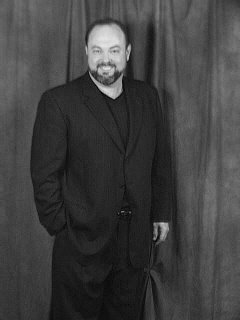 ...so that man might also become man.
...so that man might also become man. This interesting take on an old Orthodox saying by Bishop KALLISTOS Ware of Britain came home to me today more than ever as I listened to a popular radio program host lament the sad state of a sense of connectedness between people in this modern age.
The radio host/commentator went on and on about how we moderns don't know our neighbors. We don't know how to wait for anything. We want everything instantly. On and on he went about how we moderns have lost something valuable.
To some extent I agree with this assessment. But I don't think this is a problem only for we modern people. This is a human problem stretching back to the beginning of time.
It is the problem of our "forgetting ourselves."
Adam "forgot" who he was and fell, infecting the rest of us with this same tendency to "forget" who we are. St. James states "But be doers of the word, and not hearers only, deceiving yourselves. For if anyone is a hearer of the word and not a doer, he is like a man observing his natural face in a mirror; for he observes himself, goes away, and immediately forgets what kind of man he was. But he who looks into the perfect law of liberty and continues in it, and is not a forgetful hearer but a doer of the work, this one will be blessed in what he does." (James 1:22-25)
Our greatest need is to finally "come to ourselves" and wake from the stupor of self-centered ignorance and to finally become man as Christ has shown us.
This is not to reduce Jesus to simply our example, but to fully embrace the mystery of the Incarnation as a revelation of the true stature of humanity and the true nature of our creation. We were made for eternal things!
C.S. Lewis described it as sitting outside the palace, making mud pies while all along belonging inside the palace in the royal Presence of the King.
This contemplation of Christ as the new Adam, as the "new Man" is meant to shake me to the awareness that when I submit my dignity to ridicule through sin and rebellion, I mar that which was meant for eternity. Could there be any greater tragedy and loss than the potential of each man, created in the image of God, to either never realize his dignity or to waste this dignity on so base a "pottage" as temporary pleasure?
It is true that we moderns have tons of technological places to hide and separate ourselves from one another, but this is simply the continuation of the delusion humanity has been enslaved by since that fateful day in the Garden.
Christ has come, the Church has perpetuated, and the Orthodox faith demands, an awakening of the soul to the dignity each person possesses. A dignity give, not earned. A dignity that should draw from us grateful words and acts to a God Who became man so that I could become as He is and finally become what I was always meant to be.
Precious reader, now it is high time to awake from our slumber for our salvation is nearer than when we first believed. You, today, at this moment, were made for eternal things. Do not sell your birthright for anything less.








